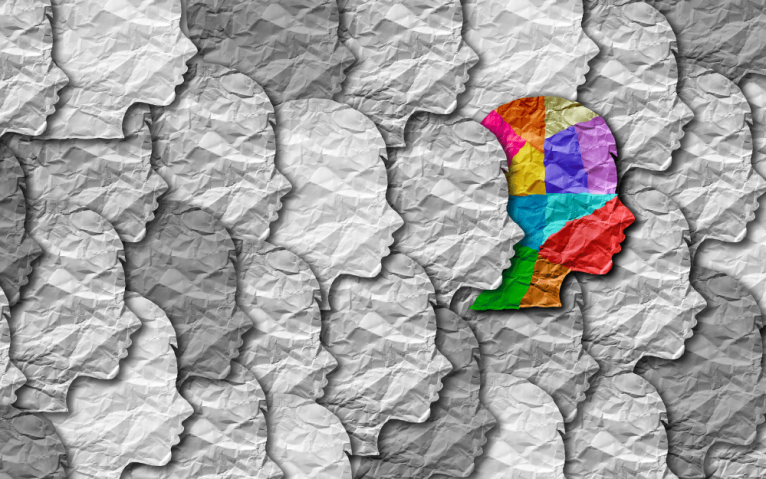For decades, researchers didn’t link autistic people and addiction. The belief was that autistic people couldn’t get addicted to things. However, new evidence says that perhaps people with autism or Asperger’s still experience substance abuse and addiction. Now, the efforts are in trying to understand the hidden link between autism and addiction, and most importantly, how to tweak treatment accordingly to help these individuals on the autism spectrum.
Understanding the Autism Spectrum
Autism is a complex condition that doesn’t have a specific cause or reason it happens. Researchers believe that genes likely play a role in the development of autism since it often runs in families. Autism causes problems with communication and behavior.
Various disorders fall under the autism spectrum disorder (ASD), including:
- Autistic disorder: People experience troubles with social interaction, communication, and imaginative play as children.
- Asperger’s syndrome: Social problems and limited scope of interest, but they don’t have a problem with language.
- Pervasive developmental disorder (PDD): An umbrella term includes people who have some autistic behaviors but don’t fit other categories.
- Childhood disintegrative disorder: These children lose some or most of their communication and social skills after two development tears.
Overall, autism is diagnosed in young children. Most cases of ASD are diagnosed by age 2. However, because the condition is so complex to diagnose, children labeled as “difficult” or “troublesome” went by without being diagnosed. However, adult autism specialists are hard to come by, making the whole diagnosis even more complicated.
The New Link Between Autism and Addiction
Until recently, the belief was that addiction among people with autism was very rare. People with autism often display behaviors that make them strict with rules, are often isolated, and those with severe autism couldn’t live independently. All of these factors made people with autism highly unlikely to try alcohol or drugs.
However, a recent study suggests that people with autism with average or above-average intelligence quotients (IQs) are twice as likely to become addicted to alcohol or other drugs than their peers. The risk is even higher for people also struggling with attention deficit hyperactivity disorder (ADHD).
Other research is finding biological and psychological commonalities between autism and addiction. Overall, the studies of these conditions have been independent, but they might be more related than people think.
After looking at the data, researchers found that an autism diagnosis doubles the risk of addiction. But, across the spectrum, different co-occurring conditions increase the risk:
- Having ADHD increases the risk 4x.
- Having an IQ in the typical range or above, along with ADHD, increases the risk 8x.
Most autistic people turned to drugs or alcohol to cope with some of the side effects, particularly anxiety. For example, alcohol can help someone on the autism spectrum ease the pressure and stress of socializing. Young people might turn to marijuana to cope with their anxiety. Not to mention, researchers point out that many people on the spectrum tend to struggle with impulse control issues, which could be one of the reasons they later struggle with substance use disorders.
Diagnosing Substance Abuse and Autism
Apparently, the key to understanding the hidden link between autism and addiction is recognizing the differences between symptoms and diagnosis. In the end, a diagnosis is likely to accompany a more extreme form of the disorder, which often narrows the search pool. Analyzing autistic symptoms and addiction means you can understand how different people on the spectrum experiment with substances.
At least 7 percent of people in addiction treatment had an autism diagnosis than 1 percent of the general population. The problem with diagnosis is that most people learn how to manage or hide their symptoms as adults. Not to mention, if they’re struggling with an addiction, those symptoms usually prevail over the autistic ones.
For diagnosis, specialists might use a children’s checklist since many of the symptoms are the same — repetitive behavior, obsession with routine, and difficulty with social interactions. Sometimes, a thorough medical detox of the abused substance must fully understand and see the autistic symptoms present.
The Challenges of Seeking Treatment
People with autism have trouble relating to others, making traditional addiction treatment programs not suitable for them. While most rehab centers focus on group meetings and interactions, this can result in the opposite effects for someone on the spectrum. Because of this, they might benefit from individual therapy sessions instead, targeted to their unique needs.
Rehab Programs for People on the Autism Spectrum
A dual diagnosis program that offers attention to autism disorder and substance use disorder is paramount for long-term recovery. The main form of treatment is cognitive-behavioral therapy (CBT), which is also a centerpiece in addiction treatment.
Studies suggest that 79% of people with autism that received CBT showed clinical improvement in their symptoms. This most likely happens because CBT helps patients manage their anxiety symptoms, which allows both addiction and autism disorders. However, the best rehab programs for people on the autism spectrum are those that:
- Adjust to the individual, developing a plan that adapts to their strengths and weaknesses.
- Provide a safe and supportive environment that focuses on individual performance rather than group reliance.
- Keep a positive attitude towards activities, learning, and development.
Treatment programs that also focus on vocational rehabilitation are more likely to benefit those on the spectrum. An integrated treatment plan that addresses substance use disorders and autism symptoms are expected to provide better support and better outcomes.
Finding Help Near Me
If you or someone you know is struggling with autism and addiction, please know there’s help available. At Lighthouse Recovery Institute, our personalized dual diagnosis programs follow a research-based approach that focuses solely on an individual’s needs. We incorporate traditional therapies with alternative care to develop an integrated treatment program that provides support, guidance, and relief. Don’t let your addiction steal your precious time. Start your recovery journey today.









